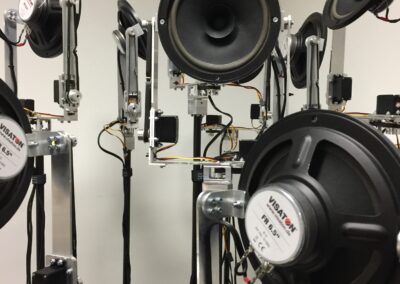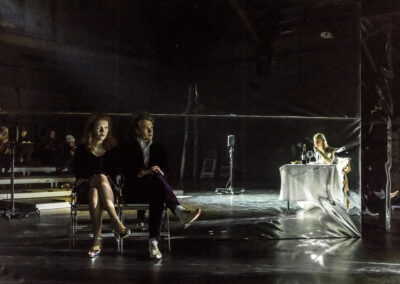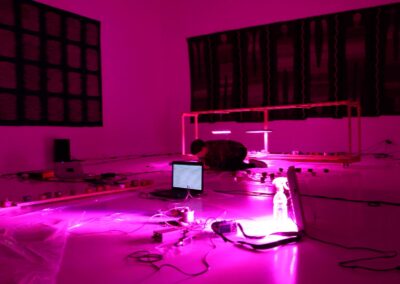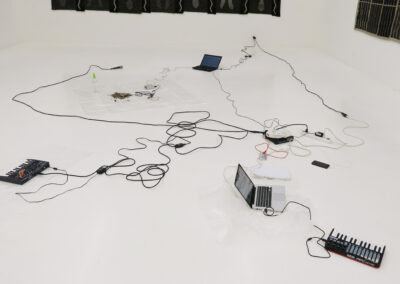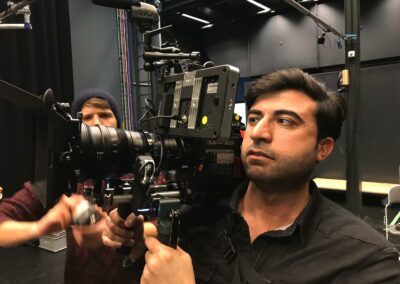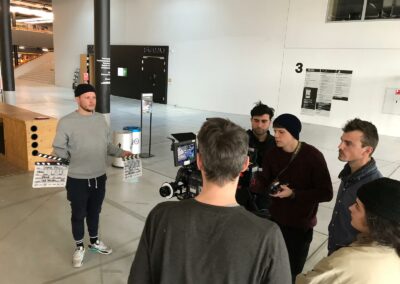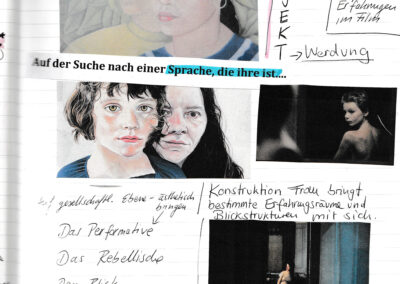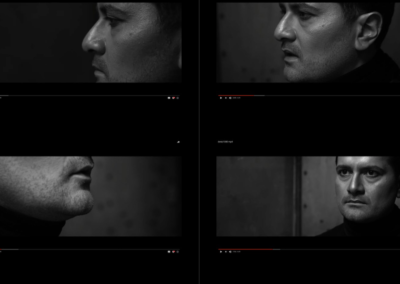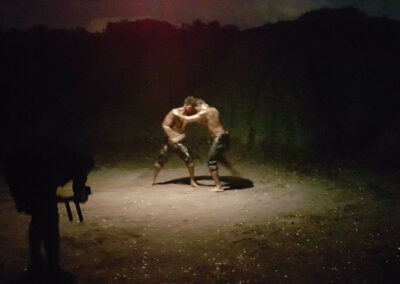Fellowship
The fellowship programme ends in summer 2021. There will be no new call for the current programme. For those interested we recommend the new PEERS-programme.
Das Fellowship-Programm endet im Sommer 2021. Zu dem aktuellen Programm wird es keinen neuen Call geben. Für Interessierte empfehlen wir das neue PEERS-Programm.
The postgraduate Fellowship-programme offered the possibility of working in the inbetween field of research, production and teaching in the means of an artistic development project within the performing arts and film. For this, participants were given a budget and the access to the ZHdK’s infrastructure. The Fellows contributed to the teaching for a loan and were obligated to help in planning and carrying out joint events with other Fellows and the participants of the cooperative PhD-programme at the department of performing arts and film. Regularly, the participation in the Fellowship-programme was two years and concluded in a public presentation.
The programme was aimed at outstanding MA-graduates in the field of theatre, film or dance as well as the artistic-scientific mid-level staff of the DDK. Discipline-specific as well as transdisciplinary projects were possible.
Further information about the Fellowship projects
Luca Magni – Virtual Voice – auf der Suche nach körperlosen Räumen der Stimme
The project explores the role of the voice in theater. The focus lies on the voice as the bearer of identity, separate from its source, the body. The voice is viewed as an audio carrier (effects of recorded material), content carrier (field of tension between content and projection of the message) and indicator of identity (voice as carrier of a social unit). These aspects are explored in three experimental arrangements.
– Mentoring: Oliver Mannel, Dimitri de Perrot, Martin von Allmen.
Magda Drozd – Invisible Voices
The project “Invisible Voices” searches for the unheard and the inaudible in both the human and the non-human through sound and performance. In my research project I appropriated detected ambient noise, used it and changed the expected meaning by questioning, changing, extracting or editing their properties. As the first research subject, I chose the Lochergut: a residential high-rise in Zurich’s district 4, which offers living space for over 600 residents. I examined the skyscraper with its material and its interior as a living machine: As an organism that is constantly changing; as a cosmos of activity and codependence. Through sound I ask, how we live together in a sensual way and reshape the environment through sound. The invisible becomes another formless being, it becomes fiction, not in the form of unreality, but of something new. The building is a starting point to reinvent, to rethink what is given.
– Mentoring: Dr. Salomé Voegelin, Prof. Dr. Jochen Kiefer
Luka Popadić – 8k to HD
Whilst cameras can record with ever higher resolutions (UHD, 6K, 8K) there is a “limit” to human perception – above a certain level of playback resolution it simply makes no sense anymore. In this difference between recording- and output resolution, we are looking for creative applications for alternative recording techniques and an extension of the visual language.
– Mentoring: Prof. Christian Iseli, Andreas Birkle
Bernadette Kolonko – Unsichtbare & Ungesagtes – die Frage nach einem “female/feminist gaze” im aktuellen europäischen Spielfilmschaffen von Regisseurinnen*
Based on the invisibility of various realities of life for women* in feature films, in my artistic research project I deal with aesthetic approaches that consciously work with feminist and intersectional concerns on the visibility of other images. The focus is on current European feature films by my generations female* directors: In interviews and productions, the question of the gaze, the aesthetic representation of the female* body, the relationship to space, etc. is investigated. Film images are tested as an artistic form in order to visually and haptically help the hidden and the invisible to become visible: spaces of experience for women*, spaces of memory, visual relationships with the world, personal desires – everything that women* had been denounced in terms of art and cultural history.
– Mentoring: Renata Helker, Jasmine Hoch
Ferhat Türkoglu – FERHAT’s Turkish Delights
Ferhat examines and documents the artistic process and para-theatrical staging strategies that are hidden in the creation and representation of a pop figure. The pop figure as a category of the fictional figure is understood as an independent artistic-performative work. He documents and analyzes the development of “FERHAT” from the staging of his first public media appearance to music videos and his musical performances.
– Mentoring: Björn Beneditz, Tobias Jundt
